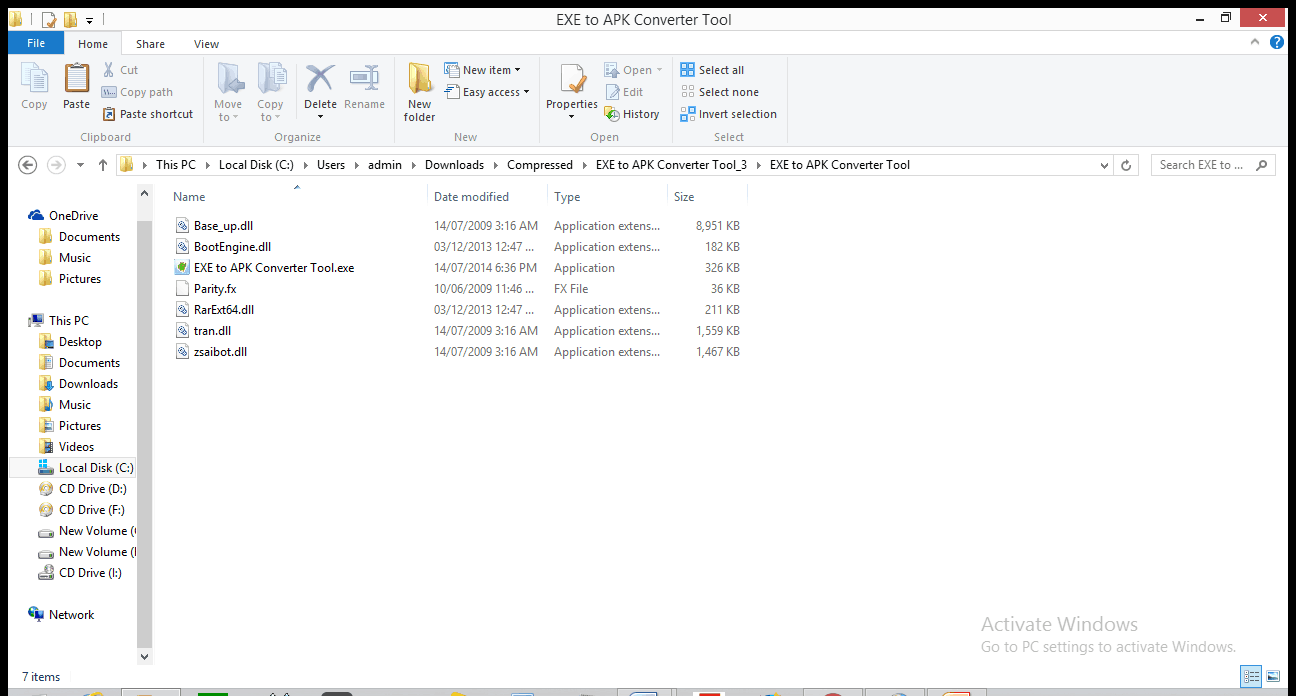
When the link has been generated for you, a download button will appear.ĭo not disconnect your computer from the internet at this point.
 Click on the download button to start downloading the converter tool. Download it to anywhere you like on your computer’s hard drive.Īfter completing these steps, you will have successfully downloaded the EXE to APK converter tool. Follow the next steps to see how to convert an EXE file to APK to install on your Android device: Step 2: Convert Portable EXE to APK Using the EXE to APK converter tool is very easy on your Windows PC. You will be able to convert a portable EXE file to APK so that you can use it on your Android device. Open the folder on your PC to where you downloaded the converter tool.įollow these steps to start converting an EXE file to APK: Converting process will take some time, so you will have to be patient. Open the “EXE to APK Converter Tool” folder and you will see its exe application file. Right-click on “EXE to APK Converter Tool.exe” and select “Run as Administrator.”. You will be asked to select the folder where your portable application files are.Select “I have a portable application”.When the converter tool runs, you will see a Welcome page with buttons, namely “I have setup files” and “I have a portable application”. The converter tool will load your files.īrowse through and select your desired folder. After the files have been loaded, click on the “Convert” button to start converting the EXE to APK. Converting the files will take time depending on the size of the files. After the files have been converted, you will see a “Success” page. Now you can copy the APK to your Android device and install it.
Click on the download button to start downloading the converter tool. Download it to anywhere you like on your computer’s hard drive.Īfter completing these steps, you will have successfully downloaded the EXE to APK converter tool. Follow the next steps to see how to convert an EXE file to APK to install on your Android device: Step 2: Convert Portable EXE to APK Using the EXE to APK converter tool is very easy on your Windows PC. You will be able to convert a portable EXE file to APK so that you can use it on your Android device. Open the folder on your PC to where you downloaded the converter tool.įollow these steps to start converting an EXE file to APK: Converting process will take some time, so you will have to be patient. Open the “EXE to APK Converter Tool” folder and you will see its exe application file. Right-click on “EXE to APK Converter Tool.exe” and select “Run as Administrator.”. You will be asked to select the folder where your portable application files are.Select “I have a portable application”.When the converter tool runs, you will see a Welcome page with buttons, namely “I have setup files” and “I have a portable application”. The converter tool will load your files.īrowse through and select your desired folder. After the files have been loaded, click on the “Convert” button to start converting the EXE to APK. Converting the files will take time depending on the size of the files. After the files have been converted, you will see a “Success” page. Now you can copy the APK to your Android device and install it. 

This was all about how to convert EXE to APK by Windows to Android. It is very simple to convert EXE files to APK like this and you can use any EXE application on your Android phone or tablet.This version of the DirectX SDK contains the following new features, tools, and documentation. The DirectX SDK will continue to support Visual The June 2010 DirectX SDK includes support for Visual Studio 2010. The June 2010 version of PIX supports naming for most resource objects However, Visual Studio 2005 will no longer be supported. PIX will now display specific string data for objects in the Object Table and other user interface elements where a Direct3D enables developers toĪttach arbitrary data to objects in D3D code using the SetPrivateData API for application-specific usage. The June 2010 version of PIX includes improvements to the PIX user interface: Human-readable object name will provide a much more effective experience for the user. Exe to apk converter mediafire portable#.

Exe to apk converter mediafire install#.








 0 kommentar(er)
0 kommentar(er)
